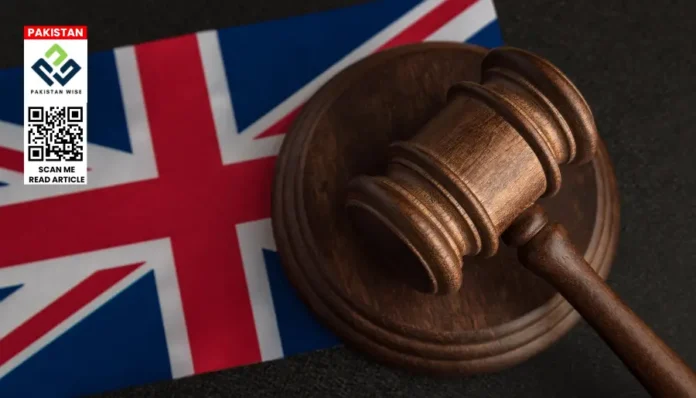- UK’s 2025 Immigration White Paper overhauls policy to reduce net migration, prioritize skilled workers, and tighten border controls.
- Key reforms include higher salary/skill thresholds, stricter family migration and settlement rules, and shorter student visa durations.
- Pakistani nationals face tougher visa criteria, with greater emphasis on English proficiency, high skills, and long-term contributions.
“Restoring Control over the Immigration System,” the UK Immigration White Paper 2025 marks a significant overhaul of the United Kingdom’s immigration framework. Published on May 12, 2025, this comprehensive 82-page document outlines the government’s strategy to reduce net migration, strengthen border controls, and prioritize skilled migration that contributes to economic growth.
Key Objectives of the UK Immigration White Paper 2025
The White Paper aims to restore order and fairness to a system described by Home Secretary Yvette Cooper as a “failed free market experiment” inherited from previous governments. The Labour government under Prime Minister Keir Starmer seeks to implement a controlled, selective, and sustainable immigration system that addresses public concerns about pressure on public services and the labor market.
Reducing Net Migration and Strengthening Borders
The government proposes radical reforms to reduce record-high levels of net migration, which quadrupled between 2019 and 2023. These reforms include tighter border security measures, enhanced deportation powers, and measures to combat illegal crossings and gang activity.
Major Changes in UK Immigration Rules White Paper
Raising Skills and Salary Thresholds
A central plank of the new immigration rules is raising the threshold for skilled workers. The level for skilled workers will be lifted back to RQF 6 (graduate level) and above, with increased salary thresholds. The immigration salary list, which previously allowed discounts on salary requirements, will be abolished. Access to the points-based system will be limited to occupations with long-term shortages, supported by evidence from the Migration Advisory Committee (MAC) and accompanied by workforce strategies to boost domestic recruitment.
Tighter Controls on Work Visas and Family Migration
Work visas for jobs below graduate-level qualifications will be strictly time-limited and only issued where there is clear evidence of labor shortages. Employers will face new responsibilities to prioritize domestic training and recruitment before seeking overseas workers.
The White Paper also introduces more stringent rules on family migration, including “clear relationship requirements” to ensure only genuine relationships qualify for visas. English language requirements will be raised across all immigration routes, including for adult dependents of workers and students, who will now need to meet A1 (Basic User) standards initially, progressing to higher levels for extensions and settlement.
Settlement and Citizenship Reforms
One of the most notable changes is the extension of the qualifying period for settlement and citizenship from five to ten years for most migrants. However, “high-skilled, high-contributing individuals” such as nurses, doctors, engineers, and leaders in emerging fields like artificial intelligence may benefit from expedited pathways.
Changes Affecting International Students and Universities
The White Paper proposes to reduce the duration of graduate visas from two years to 18 months and introduces a new levy on international student fees. It also aims to curb abuses of the student visa route by tightening regulations on colleges and universities that sponsor foreign students.
Role of Yvette Cooper in the Immigration White Paper 2025
Home Secretary Yvette Cooper has been instrumental in shaping and presenting these reforms. She has emphasized the need to “restore control and order” to the immigration system and criticized the previous government’s approach as chaotic and ineffective. Cooper’s leadership reflects the Labour government’s commitment to addressing immigration challenges while balancing economic needs and public concerns.
Implications for Pakistan and Pakistani Nationals
Given the historical and ongoing migration ties between Pakistan and the UK, the UK Immigration White Paper 2025 carries significant implications for Pakistani nationals. The raised skill and salary thresholds mean that only highly skilled Pakistani workers will find it easier to qualify for work visas. The tightened English language requirements and longer settlement periods may also affect family reunification and long-term residency plans for Pakistani migrants and their families.
Employers in the UK are now expected to increase domestic recruitment and training, which could reduce the demand for lower-skilled Pakistani workers in sectors like caregiving, hospitality, and agriculture that traditionally relied on international labor.
Summary of Key Provisions in the UK Immigration White Paper 2025
| Aspect | Key Changes |
| Skilled Worker Threshold | Raised to graduate level (RQF 6) and above; salary thresholds increased; salary discounts abolished |
| Work Visas | Time-limited for non-graduate jobs; limited to shortage occupations with workforce plans |
| Family Migration | Clear relationship requirements; higher English language standards for all migrants and dependents |
| Settlement & Citizenship | Qualifying period extended from 5 to 10 years; fast-track for high-skilled contributors |
| International Students | Graduate visa reduced to 18 months; new fee levies; stricter controls on sponsoring institutions |
| Employer Responsibilities | Must prioritize domestic recruitment and training; risk losing sponsorship rights if failing to comply |
| Border & Security | Enhanced deportation powers; crackdown on illegal crossings and gangs |
Conclusion
The UK Immigration White Paper 2025 represents a transformative approach to immigration policy, focusing on reducing migration numbers while ensuring that the UK attracts and retains highly skilled workers who contribute to economic growth. Spearheaded by Home Secretary Yvette Cooper, these reforms seek to balance public concerns with the country’s labor market needs, introducing stricter controls on work visas, family migration, and settlement rules.
For Pakistani nationals and others, the new immigration rules mean a more selective and demanding process, emphasizing skills, language proficiency, and longer commitments before settlement. The White Paper signals a clear shift towards tighter immigration controls, with a strong focus on domestic workforce development and border security, shaping the future of UK immigration for years to come.

